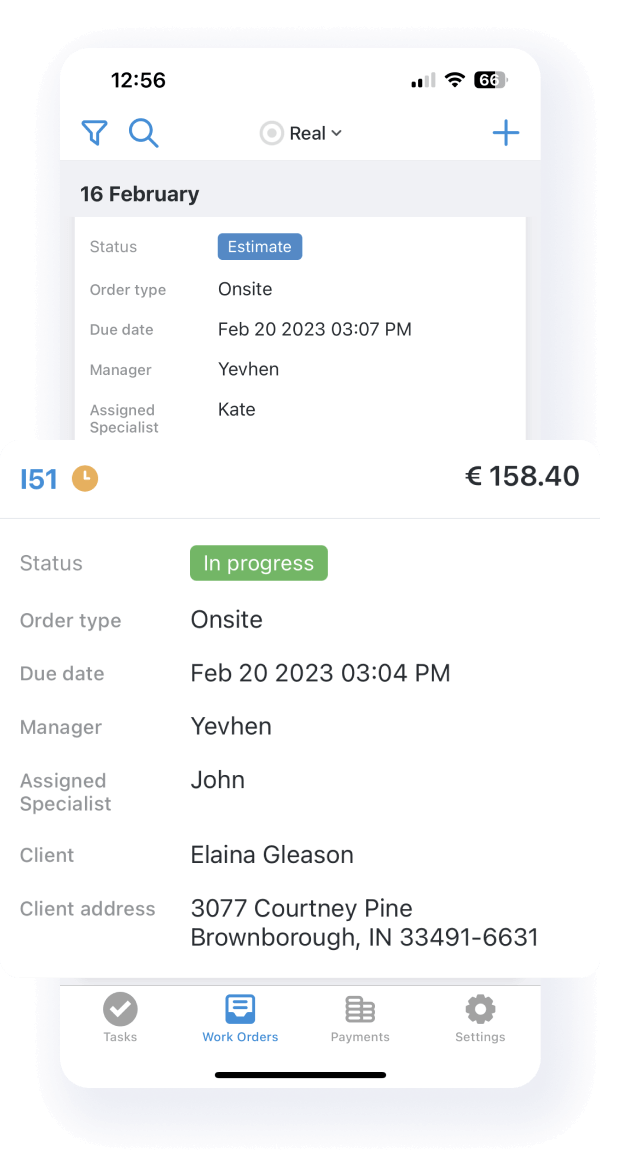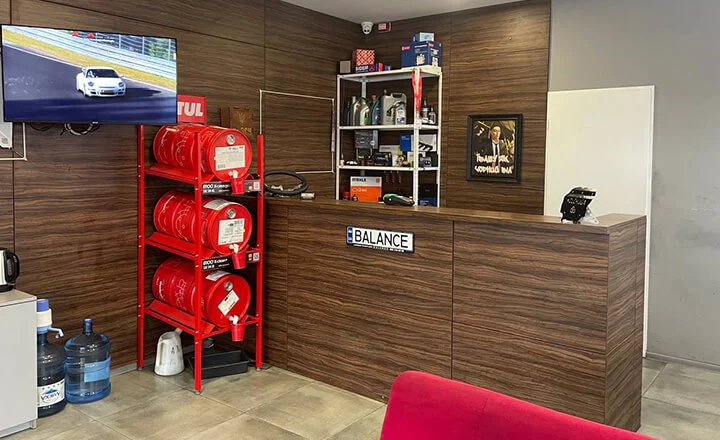How To Start Your Own Moving Company: Ten Steps To Success
If you are passionate about helping people move and dream of starting a moving company, you're in the right place. This blog post will guide you through the steps to make your new venture successful right from the start.
Table of Contents
What do Movers do?
Are Moving Businesses Profitable?
The Pros and Cons of Starting a Moving Company
How do Moving Businesses Organize their Daily Operations?
Step-by-Step Guide to Help You Get Started and Succeed
Final Thoughts
The moving industry is a thriving market, with millions of people needing help to relocate every year. In the U.S. alone, 18,500 businesses provided relocation services in 2022, and this number grows each year.
Whether residential or commercial moves, there is a constant demand for professional labor services, which makes the idea of starting a moving company lucrative and fulfilling. However, as with any business, it requires careful planning and execution to stand out in a competitive market. From obtaining the necessary licenses to building a solid customer base, this guide will provide the knowledge and insights you need to make your moving company thrive. So, let's start on your path to becoming a successful moving business owner.
What do Movers do?
Professional movers specialize in helping people relocate their belongings from one location to another. They provide a variety of services, including packing services, loading, transporting, and unpacking items. They also have the equipment and expertise to handle everything, from furniture and appliances to fragile and valuable possessions. They ensure that things are adequately secured and protected during the move to minimize the risk of damage. Movers also offer additional services such as storage solutions, furniture assembly, and disassembly and can provide guidance and support throughout the moving process. Their goal is to make the moving experience as smooth and stress-free as possible for their clients.
Residential vs. Commercial Movers
The main difference between these two types of movers lies in the type of items they handle and the logistics involved. Residential movers specialize in helping individuals and families relocate their personal belongings from one home to another. They are trained to carefully handle household items such as furniture, appliances, and personal belongings. On the other hand, commercial movers focus on assisting businesses and organizations with their relocation needs. They are experienced in handling office equipment, machinery, and other commercial goods. Commercial moves often require more complex logistics, including coordinating with building management, managing specialized equipment, and ensuring minimal disruption to business operations.
Is a Moving Business the Right Venture for You?
Running a moving business requires physical stamina, organizational skills, and handling logistics effectively. This type of business might be a good fit if you enjoy physical labor, have a knack for problem-solving, and have good social skills. Additionally, you should be ready to research the market and competition, understand the demand for moving services in the target area, evaluate the level of competition, and discover potential revenue opportunities.
Popular Business Models
Typical business models for moving companies include full-service, self-service, and specialized moving services.
- Full-service moving companies handle all moving aspects, including packing, loading, transportation, and unpacking. They may also provide storage services, packing supplies, or long-distance services.
- Self-service moving is a relatively simple business model that offers a more affordable option where customers handle the packing and loading themselves while the company provides transportation.
- Specialized moving services cater to specific needs, such as moving valuable or fragile items, pianos, or artwork. This niche business has the expertise and specialized equipment to ensure these items are safe and securely transported.
Digitalize business processes from the very beginning to start a competitive business.
RemOnline will help you organize your routine most effectively.
Are Moving Businesses Profitable?
The profitability of your new company can vary depending on various factors such as location, competition, pricing, and efficiency. Overall, the moving industry is lucrative for entrepreneurs as there is a constant demand for moving services, especially in urban areas where people frequently relocate. Moreover, moving companies have the potential to generate additional revenue by offering other services such as packing, storage, and specialty item handling.
However, the moving industry is also highly competitive, with many established companies and new entrants vying for customers. This can lead to price pressures and the need to differentiate yourself from competitors. Furthermore, the costs associated with running a moving business, such as maintaining a fleet of commercial trucks, insurance, and hiring and training employees, can impact profitability. Overall, while a moving company has the potential to be profitable, it requires careful planning, efficient operations, and effective marketing strategies to ensure success.
The Pros and Cons of Starting a Moving Company
On the positive side, there is a high demand for moving services as people frequently relocate for various reasons. This means there is potential for a steady foundation of clients and revenue. Also, starting this business does not require significant capital investment, as it can be created with a truck and a small team. Another advantage is that you can be confident that the quantity of clients won’t change dramatically in economic crises as people will still move—to more expensive or more modest housing.
On the other hand, there are some challenges and drawbacks to consider. Competition in the moving industry can be fierce, making it difficult to stand out and attract potential clients. The physical nature of the work can also be demanding, requiring strength and stamina. Furthermore, there may be legal and regulatory requirements to navigate, such as obtaining proper licenses and insurance.
| Pros | Cons |
| High demand | High competition |
| No significant investments required | Labor-intensive activity |
| Resistance to economic declines | Risk of injury and health issues |
| Individuals and companies as potential clients | Licenses and insurance required |
How do Moving Businesses Organize their Daily Operations?
A systematic approach is a must if you want to succeed in a highly competitive environment. Start by creating a detailed schedule that outlines the tasks and activities for each day. This includes coordinating with clients, scheduling and dispatching moving crews, and ensuring all necessary equipment and supplies are available. You should also prioritize tasks based on urgency and customer requirements. Communication plays a crucial role in daily operations, as moving businesses need to keep clients informed about the progress of their move and address any concerns or issues promptly. And don’t forget to maintain proper documentation and record-keeping to ensure accuracy and efficiency in your operations.
To ensure smooth daily operations, consider moving business software. When using RemOnline, you will streamline all your internal processes like scheduling, record-keeping, customer communication, field service management, employee payroll, taxes, and analytics.

Processing jobs via the RemOnline Work Orders application
Step-by-Step Guide to Help You Get Started and Succeed
- Research and Develop a Business Plan
Before diving into the moving industry, it's crucial to research and understand the markets. Identify your ideal customers, competitors, and potential challenges. Develop a comprehensive business plan that outlines your revenue goals, moving services, pricing structure, and regular marketing strategy. - Obtain the Necessary Licenses and Permits
You must obtain various licenses and permits to operate a moving company legally. Check with your local government or transportation department to determine the specific requirements in your area. Standard licenses include a motor carrier number, a USDOT number, and state-specific permits. - Purchase or Lease Moving Equipment and Vehicles
Invest in reliable equipment and vehicles that can handle different types of moves. This includes a box truck, pickup truck, dollies, furniture belts, straps, and packing supplies. Consider whether purchasing or leasing is the best option for your business. - Secure Insurance Coverage
Moving involves inherent risks, so protecting your business and customers with proper insurance coverage is essential. Seek advice from an insurance professional and obtain liability, cargo, and workers' compensation insurance, among others. - Hire and Train Reliable Staff
Your moving company's success relies heavily on the quality of your staff. Hire reliable and physically fit individuals who can handle the job's demands. To meet and exceed client expectations, provide comprehensive training on proper lifting techniques, packing methods, and customer service. - Establish Partnerships and Build a Network
Establish partnerships with real estate agents, property managers, and other businesses that can refer their loyal clients to your moving company. Attend local networking events and join industry associations to expand your professional network. - Develop a Strong Online Presence
A solid online presence is crucial for any business in today's digital age. Create a professional website that showcases your services, pricing, and testimonials from satisfied customers. Implement social media marketing best practices to engage with your target audience and advertise your moving company. - Implement Effective Marketing Strategies
This can include online advertising, search engine optimization (SEO), targeted direct mail campaigns, and partnerships with local businesses. Offer promotions or discounts to incentivize potential customers to choose your moving services. - Provide Exceptional Customer Service
Word-of-mouth referrals are vital in the moving industry. Provide exceptional service to ensure customer satisfaction and positive reviews. Train your team to handle customer inquiries and concerns promptly and professionally. - Continuously Evaluate and Improve
Regularly evaluate your moving company's performance and make necessary improvements for ongoing business development. Monitor customer feedback, track your monthly revenue, and stay updated on industry trends. Continuously educate yourself and your staff to provide the best moving experience possible.
RemOnline automates review collection and provides you with insightful reports. See how it works in a short demo
Final Thoughts
Before starting a moving company, you should understand the logistics and operations involved in the moving industry. This includes knowing how to properly pack and transport items and understanding any regulations or licensing requirements that may apply to your business. It is also essential to have a solid business plan, including market research, revenue forecasting, and a clear marketing plan for attracting and retaining customers. Additionally, you should understand the costs of starting and running a moving company, such as purchasing or leasing trucks, hiring employees, and obtaining business insurance. Finally, you must consider the competitive landscape in your area and identify ways to differentiate your moving company from others in the market.



